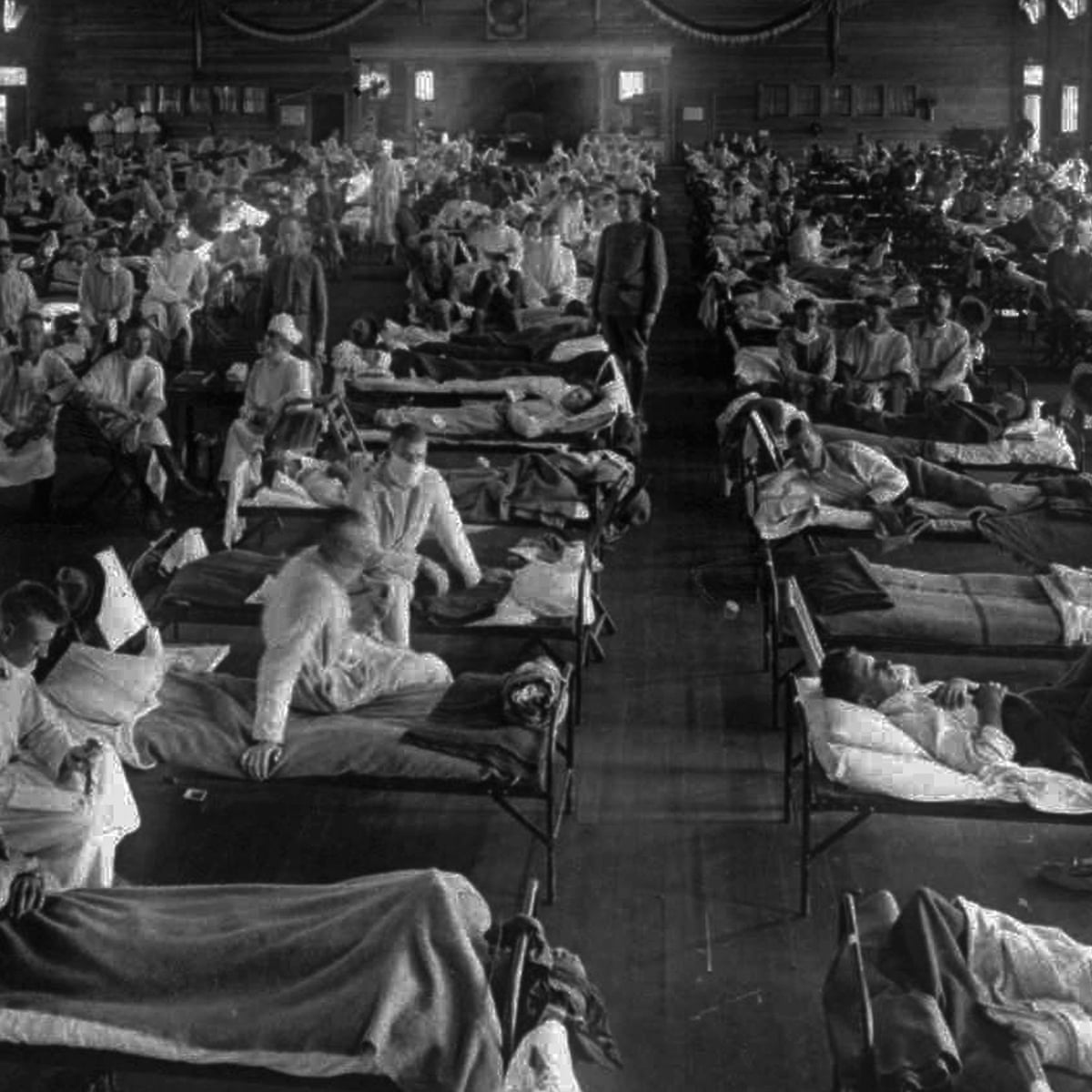It was caused by an H1N1 virus with genes of avian origin. Take for example the flu pandemic of 1918-1919.
 Spanish Flu The Killer That Still Stalks Us 100 Years On Flu Pandemic The Guardian
Spanish Flu The Killer That Still Stalks Us 100 Years On Flu Pandemic The Guardian
Skip to main content Live Science.

Spanish flu date. The one thing all of these pandemics have in common is that they all lasted for about a year. In the United States it was first identified in military personnel in spring 1918. Scientists still do not know for sure where the Spanish Flu originated though theories point to France China Britain or the United States where the.
Red Cross workers make anti-influenza masks for soldiers Boston Massachusetts. The associated influenza provoked in Madrid a mortality rate of 131 per 1000 inhabitants between May and June 1918. The 1918 influenza pandemic is mistakenly called The Spanish Flu because Spain was neutral during the First World War and there was no news embargo on the death toll there.
In 1918 our world saw another grave pandemic -- the infamous Spanish Flu -- that as per estimates claimed lives of over 50 million people around the world. In the following months of June and July the epidemic spread to Portugal but did not reach the Pyrenees. After all other viral pandemics have.
The virus hit in three waves with the second during the fall of 1918 specifically. In 1918 the US population was 1032 million. Overall the Spanish flu was present in England from June 1918 to April 1920 in three different waves meaning it was in the country for just under two years.
Reference Trilla Trilla and Daer 2008. Albert Gitchell was reported sick on March 4 1918 at Fort Riley. That pandemic was the deadliest in the 20th century.
By the time the second wave had started in the United States France and Sierra Leone in August the H1N1 Influenza-virus had mutated. March 1918 - 1919. It was called the Spanish flu because it was first officially noticed in Spain in May 1918 Spain was neutral in WWI and was one of the only countries with a reliable press at that time so they reported the flu earlier than other countries.
It infected about 500 million people and killed at. Though the Spanish Flu Pandemic lasted a year and a half having started in January 1918 and mostly. Most striking is the large sudden decline of life expectancy in 1918 caused by an unusually deadly influenza pandemic that became known as the Spanish flu.
Although there is not universal consensus regarding where the virus originated it spread worldwide during 1918-1919. Between 08 164800 and 31 638000 of those infected died from influenza or pneumonia secondary to it. In the US the Spanish flu was first observed in January 1918 in Kansas.
To make sense of the fact life expectancy declined so abruptly one has to understand what it measures. The 1918 flu pandemic virus kills an estimated 195000 Americans during October alone. The flu was first observed in Europe.
Most likely migrant Spanish and Portuguese workers travelling by train to and from France brought the pandemic to Spain Trilla et al. Photo by Topical Press AgencyGetty Images Other countries no less affected by the war made more rigorous efforts than Britain to deal with the flu. Influenza pandemic of 191819 also called Spanish influenza pandemic or Spanish flu the most severe influenza outbreak of the 20th century and in terms of total numbers of deaths among the most devastating pandemics in human history.
The Spanish Flu of 1918 was one of the worst pandemics in history eventually killing 50 million people worldwide. The 1918 influenza pandemic was the most severe pandemic in recent history. In 1918 an influenza virus known as the Spanish flu killed over 50 million people all over the world making it the deadliest pandemic in modern history.
Within few days over 522 men at Fort Riley reported ill. National Archives Identifier 45499341 Before COVID-19 the most severe pandemic in recent history was the 1918 influenza virus often called the Spanish Flu The virus infected roughly 500 million peopleone-third of the worlds populationand caused 50 million deaths worldwide double the. During the three waves of the Spanish Influenza pandemic between spring 1918 and spring 1919 about 200 of every 1000 people contracted influenza about 206 million.
In fall of 1918 the United States experiences a severe shortages of professional nurses because of the deployment of large numbers of nurses to military camps in the United States and abroad and the failure to use trained African American nurses. A woman wearing a flu mask during the Spanish Flu pandemic 27 February 1919.